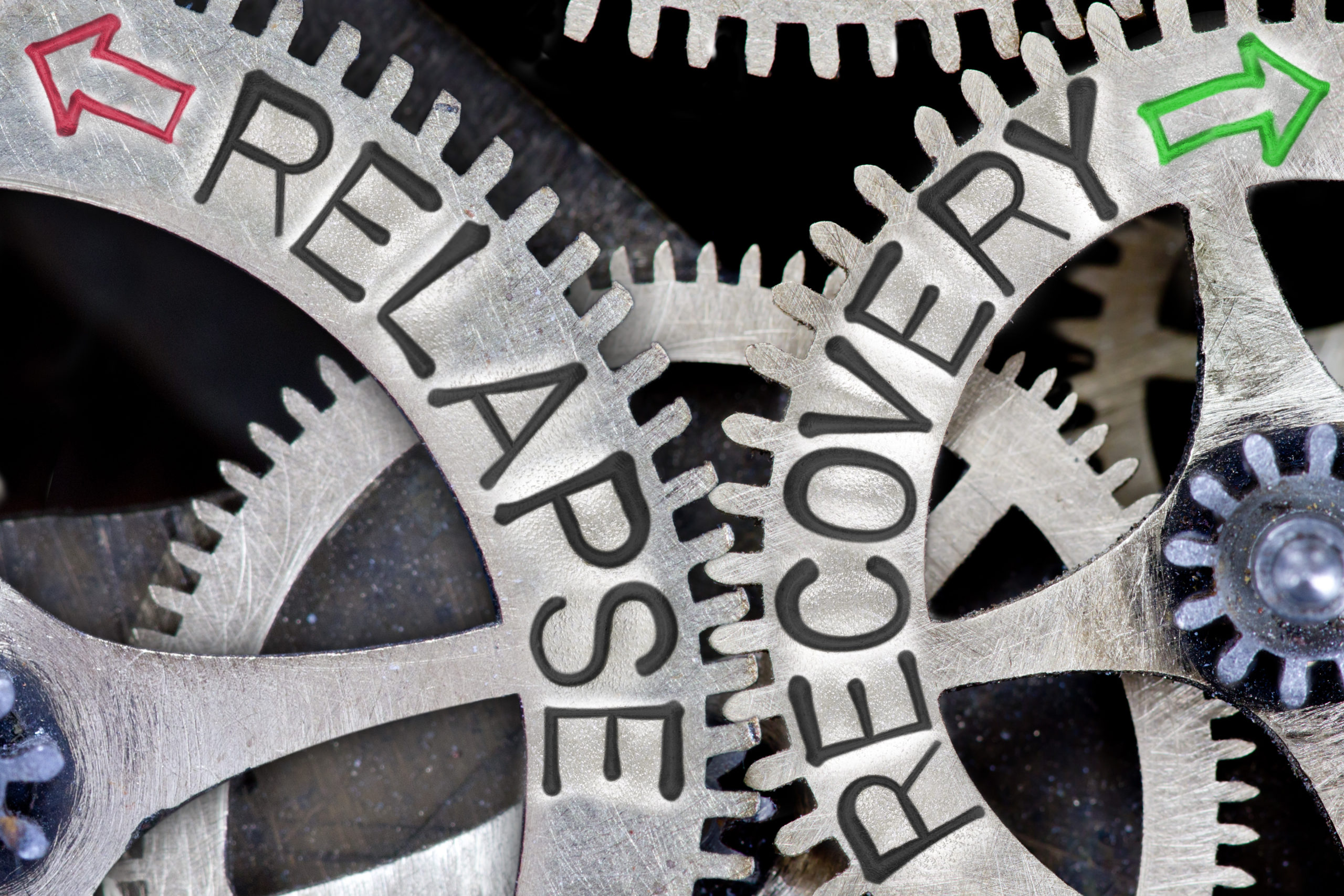Recovering from addiction is not an easy process and rarely goes according to plan. Often, by the time people have reached the stage where they seek addiction treatment at a rehab center, they have already tried and failed to defeat their addiction to drugs and alcohol on their own. Relapses are a normal, but dangerous phase many people experience during recovery.
Long-term and even sometimes short-term substance abuse results in changes to the way the brain operates. This causes those who struggle with addiction to actively and compulsively seek out substances despite the adverse consequences of using it. The time it takes for the brain to restore a “normal” function can range from months to years, depending on the severity of a person’s addiction. During that time, everyday triggers and overwhelming cravings can lead to relapse.
What Is a Relapse in Addiction?
Statistics show between 40% and 60% of individuals in recovery experience at least one incidence of relapse. Some may experience several before successfully attaining and maintaining sobriety. Where addiction is concerned, a relapse is the downward spiral back into compulsive behavior and addiction. A relapse does not occur suddenly. It is not like a broken bone or a car accident. Relapse is generally a combination of several events or repeated exposure to triggers that lead an individual to reach for drugs or alcohol as a way to cope. Historically, their substance of choice has been their methodology for coping during stressful or emotional times. Therefore, they reach for that same substance when their current situation has become too difficult to handle.
Often there are a variety of signs and symptoms one might exhibit when experiencing a relapse. Some of the most common include destructive thoughts, compulsive behavior, a return to unhealthy behaviors or environments, mood swings, recurrence of previous mental health symptoms, and isolation from groups or activities.
What Are the Stages of the Relapse Process?
As previously mentioned, relapse is a process. It often takes weeks or even months before someone “slips” for the first time after leaving a treatment program. There are several steps to the stages of the relapse process that one goes through before fully relapsing, and those have been divided into three phases to make it easier to understand.
Emotional Relapse
The first stage of relapse is emotional relapse. During this stage, a person has not returned to or even considered drinking or using yet. However, during emotional relapse, they do not practice the coping behaviors or self-care techniques they were taught during treatment to help cope with triggering events and maintain their sobriety.
Some signs of emotional relapse may include distancing oneself from supportive friends or family, attending recovery meetings, but not participating and mood changes. The lack of proper self-care during emotional withdrawal often leads to feelings of unhappiness, negative emotions, and increased levels of stress; All of which cause them to use in the past. As inadequate self-care continues, a progression into mental relapse occurs.
Mental Relapse
During the mental relapse phase, people begin to consider turning to drugs or alcohol to cope. Because they know using is not a healthy or positive solution, they try to use the coping behaviors learned during therapy; however, a negative mental state often overpowers learned protective factors.
During this second stage of relapse triggers such as places, people, and events associated with past addictive behaviors can trigger cravings. During mental relapse, addicts in recovery may minimize the adverse side effects of drinking or using. Also, they may start to look for opportunities to relapse or even make a plan to relapse.
Physical Relapse
The final stage of relapse is physical relapse. This stage begins when the person uses again or “slips.” Sometimes, immediately after a slip, people regret using or drinking and find an even more powerful passion for recovery. Still, for others, this may not be the case.
It is essential to seek recovery after a slip to prevent a potentially dangerous spiral back into addiction. Those who do not seek treatment after a slip will generally experience physical relapse (withdrawal). To avoid the symptoms associated with the stage of relapse, they often turn to obsessive or compulsive substance use.
Learn Coping Mechanisms at Soba Recovery
Achieving sobriety can be difficult. The first and most crucial step is to seek treatment. At Soba Recovery, we offer an affordable substance abuse treatment program in a luxury setting. Our team of highly trained addiction treatment professionals understands how challenging the decision to seek treatment can be. But we also know detox and therapy at a center like Soba Recovery is the safest and most effective way to defeat addiction. If individualized one-on-one treatment at a renowned residential treatment center is the next step for you, contact Soba Recovery today.



